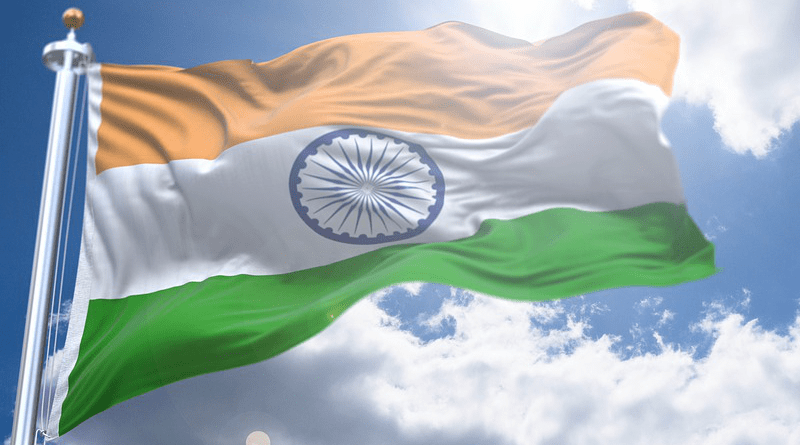India’s Upcoming FATF Review: Human Rights And Democracy On Trial – OpEd
In November 2023, India will be subjected to a mutual review by the Financial Action Task Force (FATF), which will examine its compliance with international standards for combatting money laundering and terrorism funding. The FATF is a global organization that develops and monitors recommendations for its 39 member countries to curb illegal financial flows and cut off funding to terrorist organizations. India became a full member of the FATF in 2010 and has subsequently enacted different laws and regulations to implement the FATF’s 40 guidelines and nine special recommendations. However, India’s implementation of these suggestions raises severe questions about the country’s regard for human rights and democratic norms.
According to the FATF’s most recent consolidated assessment scores, India has a mixed record of compliance with FATF guidelines. India received a compliant rating on 15 of the 40 technical compliance indicators, a substantially compliant rating on 21, a somewhat compliant rating on 3, and a non-compliant rating on 1. The non-compliant indicator is connected to the transparency and beneficial ownership of legal arrangements, implying that India has not taken appropriate efforts to prevent the exploitation of trusts and other legal arrangements for money laundering or terrorism funding.
India has achieved a significant degree of effectiveness on four of the eleven effectiveness metrics, a moderate level of effectiveness on five, and a low level of effectiveness on two. The indications of low efficacy are connected to the investigation and prosecution of terrorism funding offences, as well as the execution of targeted financial sanctions against proliferation financing. This implies that India has not demonstrated its ability to effectively detect, investigate, and punish terrorism funding operations, or to impose sanctions on entities implicated in the proliferation of weapons of mass destruction. India has also come under fire for utilizing the FATF guidelines to tighten down on civil society and journalists who have questioned the government’s policies and actions.
The government has used harsh laws like the Unlawful Activities Prevention Act (UAPA), the Prevention of Money Laundering Act (PMLA), and the Foreign Contribution Regulation Act (FCRA) to intimidate, arrest, and prosecute activists, academics, lawyers, students, and media professionals on weak and broad charges of terrorism, sedition, money laundering, and foreign funding. These laws have been abused to silence critical opinions, restrict opposition, and violate the rights to free expression, association, and assembly.
Amnesty International India head Aakar Patel claimed that the Indian government has used the FATF guidelines to target civil society organizations and individuals who are critical of the government or its policies. He stated that Indian authorities have used laws such as the Prevention of Money Laundering Act (PMLA) and the Foreign Contribution (Regulation) Act (FCRA) to harass, arrest, and prosecute human rights defenders, journalists, academics, students, and others who oppose the agenda of the ruling Hindu nationalist Bhartiya Janata Party (BJP).
The Indian government’s actions also demonstrate how it has failed to safeguard minorities, particularly Muslims and Sikhs, from attacks by BJP officials and followers who identify them as anti-national and terrorist sympathizers. The government has also repressed peaceful rallies by Muslims against the discriminatory citizenship law and farmers against new agricultural restrictions, accusing them of planning against national interests and having ties to separatist organizations.
In areas where protests took place, such as Kashmir, Delhi, and Punjab, the government has also blocked access to information and communication technology, including the internet and mobile phones. In addition, the government has utilized online monitoring and censorship to monitor and regulate the flow of information and ideas on social media sites like Twitter and Facebook. The government has also put pressure on these platforms to delete or prohibit information that is critical of the government or its policies, as well as anything that supports demonstrators or minorities.
The mismanagement of the BJP government handling the issue of minorities and hate crimes against them has implications for the India review due in November. The Indian government needs to demonstrate its commitment to combatting money laundering and terrorism funding while also safeguarding human rights and democratic ideals. India should take meaningful actions to rectify gaps and shortcomings in its compliance with FATF recommendations, as well as to guarantee that its laws and policies do not target civil society and journalists or violate the rights of minorities and demonstrators.
India should also interact proactively with the FATF and its peer countries to improve its performance and accept constructive comments and recommendations. India should uphold its constitutional rights of free press, assembly, and minorities not only to maintain its FATF membership but also as a responsible member of the international community and promote intact the FAFT recommendations to letter and spirit without abusing them to silence critics. This will play a vital role in promoting regional stability and security and preventing terrorism and extremism in South Asia.

